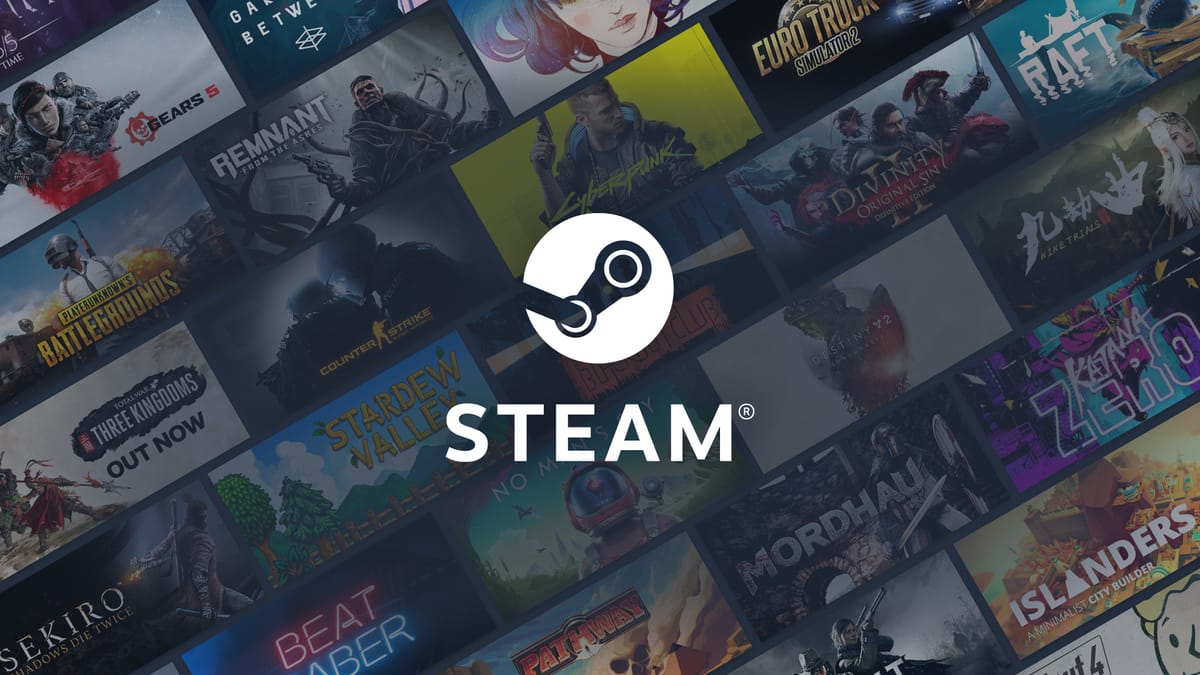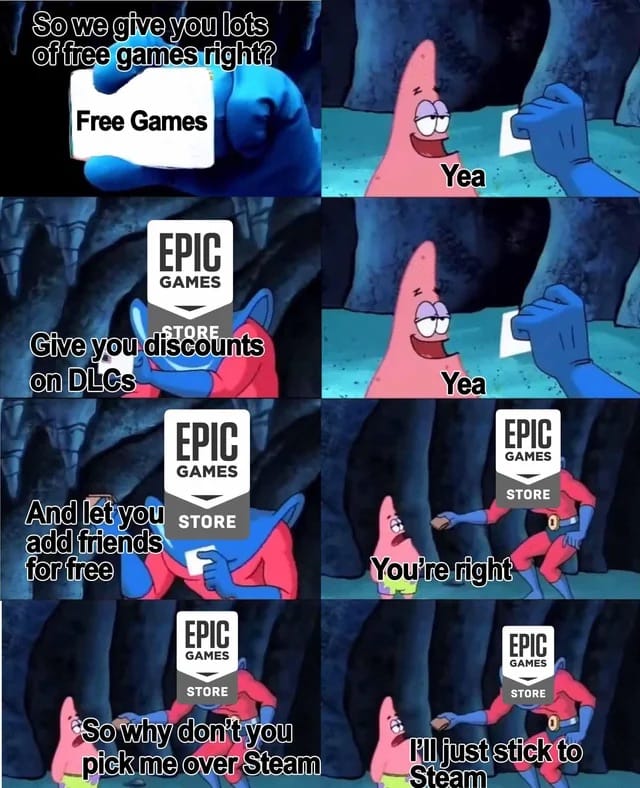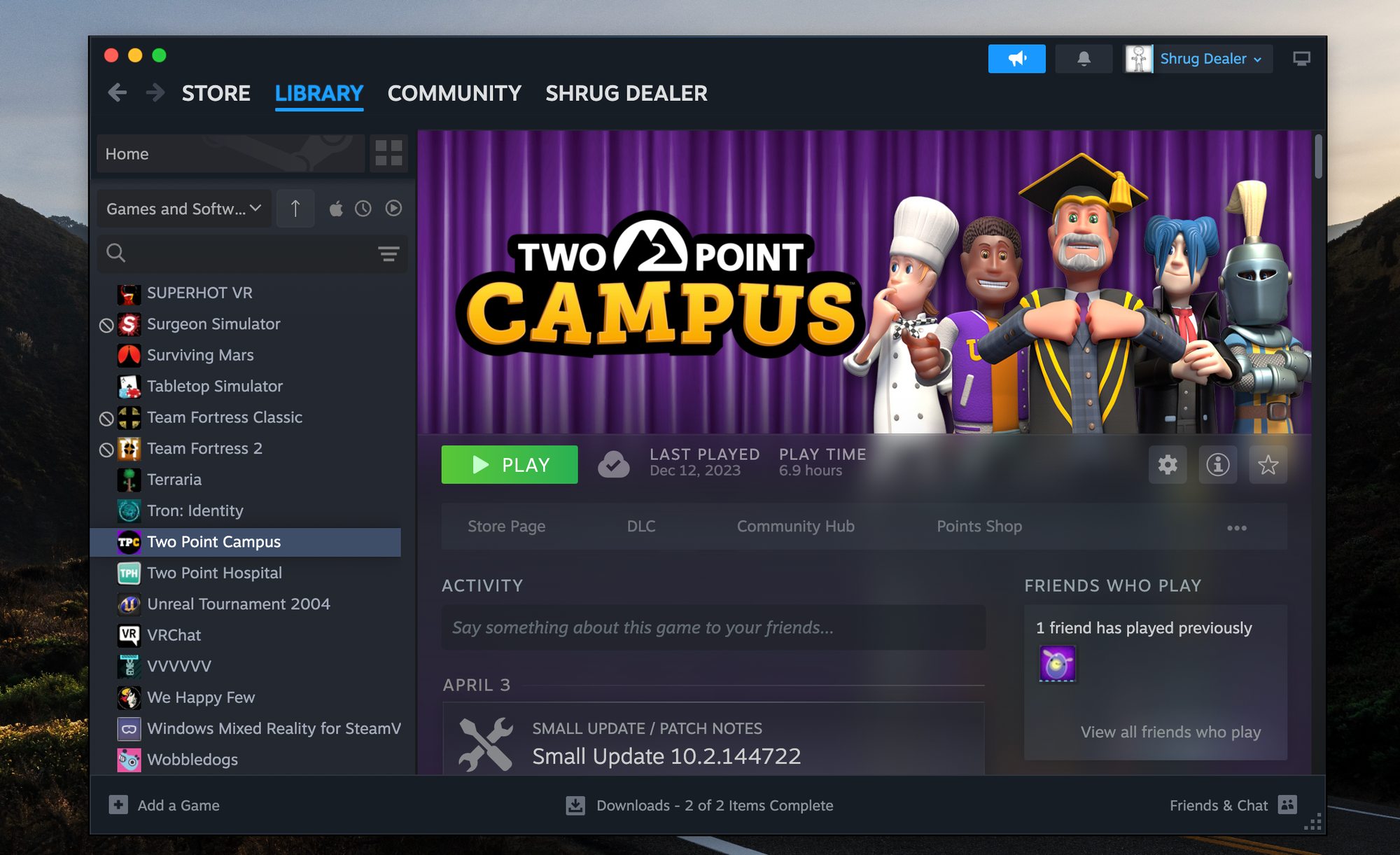Steam is a ticking time bomb
The 'enshittification' of the Steam games platform is inevitable, and there are already warning signs.

Steam has been the dominant force in PC games for over a decade, giving its owner Valve significant control over the entire ecosystem of desktop and laptop gaming. In many ways, Steam has been a force for good, but its near-monopoly status over game sales and distribution increasingly feels like a bomb that could go off at any time.
First, some overview for you non-gamers out there. Steam is first and foremost a game store, where the games you purchase can be installed and opened using the Steam desktop application ("launcher"). Steam is also a social network that games can hook into using the Steamworks SDK. Games can add achievements, multiplayer features, and mods that integrate into the Steam application. Those are many of the same features available across all games on Xbox and PlayStation consoles, to the point where Steam is usually discussed in the same breath as full-blown consoles. Steam is often inseparable from PC gaming.
Valve has maintained its strong position with a few unquestionably pro-consumer moves. There are store-wide sales on a regular basis. The multiplayer services are free for players, unlike on PlayStation, Xbox, and Nintendo consoles. Most recently, Valve has given PC gaming on Linux operating systems a boost through its Proton compatibility layer and its contributions to the Wine project. Steam's public surveys offer a unique look at the state of PC gaming. Those actions have given Valve a positive image in the gaming community, to the extent where memes idolizing Gabe Newell (the president and co-founder of Valve) have been common for over a decade now.
Valve and Steam are far from perfect. The company was slapped with a $3 million fine for violating Australian consumer laws, which might be why the Steam Deck is still unavailable in Australia. Steam's 30% cut on each purchase has been criticized over the years, especially with Steam's market share being too large for many developers to ignore. The moderation and game policies on Steam also haven't been great—more than a few offensive games made it past Steam's content filters before later being removed, like a 2018 game that simulated a school shooting.
The launcher party
Steam's position in the market is a functional monopoly, but there have been challengers. The greatest example is the Epic Games Store, which started as just the launcher for Fortnite, then became a full-blown store in 2019 for third-party games. The Epic Games Store was light on features at first, and still doesn't have many of the community-centric features in Steam, but it has a Steamworks-like multiplayer framework and other core functionality. Epic also doesn't take as much money from game developers as Steam's 30% cut.
Epic Games has been clear about seeing Steam as a direct competitor, and has done everything from giving away free games to paying for timed exclusives to entice players. Borderlands 3 was initially only available on PC through the Epic Games Store for six months, before arriving on Steam—Epic paid $146 million for that.
This is supposed to be how competition in the marketplace works, and it should be a shining example of how PC is a fundamentally different platform for games than consoles and (for the most part) smartphones. There's no room for alternative distribution or better deals for developers in locked-down consoles. In reality, the Epic Games Store has been met with indifference, ridicule, and boycotting attempts.

I have no desire to defend Epic Games. The game launcher isn't amazing, and the company doesn't support Linux at all. I did want to see more competition for Steam, though, if only because one company controlling much of the sales and online infrastructure for the massive PC games ecosystem is scary. The lock-in effect with Steam is so great that giving games away for free is not putting a sizable dent in Valve's dominance. It's difficult to get an exact comparison, but Epic reported 75 million monthly active users in December 2023, while Steam has around 20-30 million concurrent users at any given moment.
There are a few other game stores and platforms attempting to cut into Steam's dominance. Microsoft has PC Game Pass and the Microsoft Store, EA and Ubisoft have store and multiplayer ecosystems for their own games, and the CD Projekt-owned GOG.com specializes in classic and DRM-free games. CD Projekt has been open about its difficulties keeping GOG running in the past, and it's clear Epic hasn't (yet) achieved its goal of a store with a Steam-level userbase and game library.
You forgot the Mac
If you want a preview of an uncaring and anti-consumer Valve, look no further than the company's efforts on Mac. Valve released the Steam store on macOS in 2010, alongside native Mac ports of the Half-Life series, Team Fortress 2, Left 4 Dead 2, and Portal. Valve continued releasing new games on Mac for a while, such as Portal 2, fully committing to the Mac as a gaming platform.
Unfortunately, that enthusiasm didn't last long. The gaming ecosystem on Mac never matched Windows PCs, so there wasn't as much money in it. Steam on Mac continued to receive the same updates and new features as the Windows version, and SteamVR support arrived in 2017 after coming to Windows in 2014, but there wasn't much else happening.
Valve never updated any of its earlier games to run in 64-bit mode, because the underlying Source engine was 32-bit across both Windows and Mac. Apple dropped support for 32-bit applications in 2019, with the release of macOS 10.15, making all of those games inaccessible on newer Mac hardware. Valve eventually dropped support for Steam on macOS 10.14 in February 2024, making all 32-bit Mac games on Steam unplayable, even for computers with that operating system still installed. Before that, Valve killed SteamVR on macOS in 2020, only four years after its introduction.
Valve also declined to release a Mac version of Counter-Strike 2, which is a 64-bit game built on the newer Source 2 engine, and later shut down the older 32-bit CS:GO game. The company said in 2023 that Mac players, combined with Windows PCs using DirectX 9 graphics and 32-bit operating systems, collectively were less than 1% of active CS:GO players. When the only way to play CS:GO on a Mac was to boot into an outdated version of macOS on older hardware, the minuscule player base makes sense.
You might think that Valve's current lack of interest in releasing games on Mac doesn't have anything to do with Steam as a service. However, much of the software development in Steam happens because of Valve's games. The initial release of Steam was inspired, in part, by the need for an update manager and anti-cheat solution for Counter-Strike. Valve started working on the Wine project and Proton compatibility layer because it wanted to sell a Linux-powered gaming handheld. When the Steam community market launched in beta in 2012, the first supported game was Team Fortress 2.
Steam for Mac no longer exists to sell Valve's own games, and it has visibly suffered as a result. Steam is still not updated to run natively on Apple Silicon-based Mac computers, nearly four years after Apple's transition away from Intel CPUs started. It's now a slow and clunky barrier to playing the games I own on my Mac computers—a far cry from the pro-consumer persona that Valve and Steam usually enjoy.

Valve isn't obligated to continue supporting all its games and software features on Mac, especially when Apple's reluctance to natively support Vulkan and other cross-platform technologies makes game development more complex. There's no excuse for Steam on Mac to be a far worse experience than on other platforms, though.
A scary future
Steam didn't always have the glowing popularity it enjoys today. The store's breakout moment was the release of Half-Life 2 in 2004, which required Steam for activation and online play. The Amazon customer reviews for the boxed PC versions echo many of the same complaints you hear today with other game launchers: it's unnecessary, it breaks sometimes, it needs an internet connection, and so on.

Steam is a lot better now than it was in 2004, and issues with internet connectivity and always-on digital rights management (DRM) have mostly faded away as global internet infrastructure improve. However, there's a still a degree of normalization that exists with Steam. The mid-2000s complaints about requiring a launcher for a game have faded away: now the problem is when a game needs a launcher in addition to Steam. The discourse about how you can't truly "own" cloud games or always-online games usually ignores that you also don't "own" Steam games, because it's still a form of DRM.
It's also a bit strange to see Steam held up as a shining example of PC software, when it's still a 32-bit executable on Windows and Linux, which causes problems on desktop Linux systems that already dropped 32-bit libraries. Funny enough, the only platform with a 64-bit Steam client is Mac.
Valve has avoided many of the same anti-consumer moves as other tech and gaming giants, likely due to its smaller size, status as a non-public company, and the long-time leadership of Gabe Newell and other executives. Valve won't stay that way forever—the company is not immune to the pressures of capitalism, and there are already examples of anti-consumer behavior.
Eventually, the bomb will go off, and the full 'enshittification' of Steam will commence. There will be competitors ready to take its place, but the current reluctance to embrace any Steam alternatives right now makes me worry that even a malicious Valve could keep a stranglehold on the PC as a software platform for years.




